The First Tiananmen Square Revolt
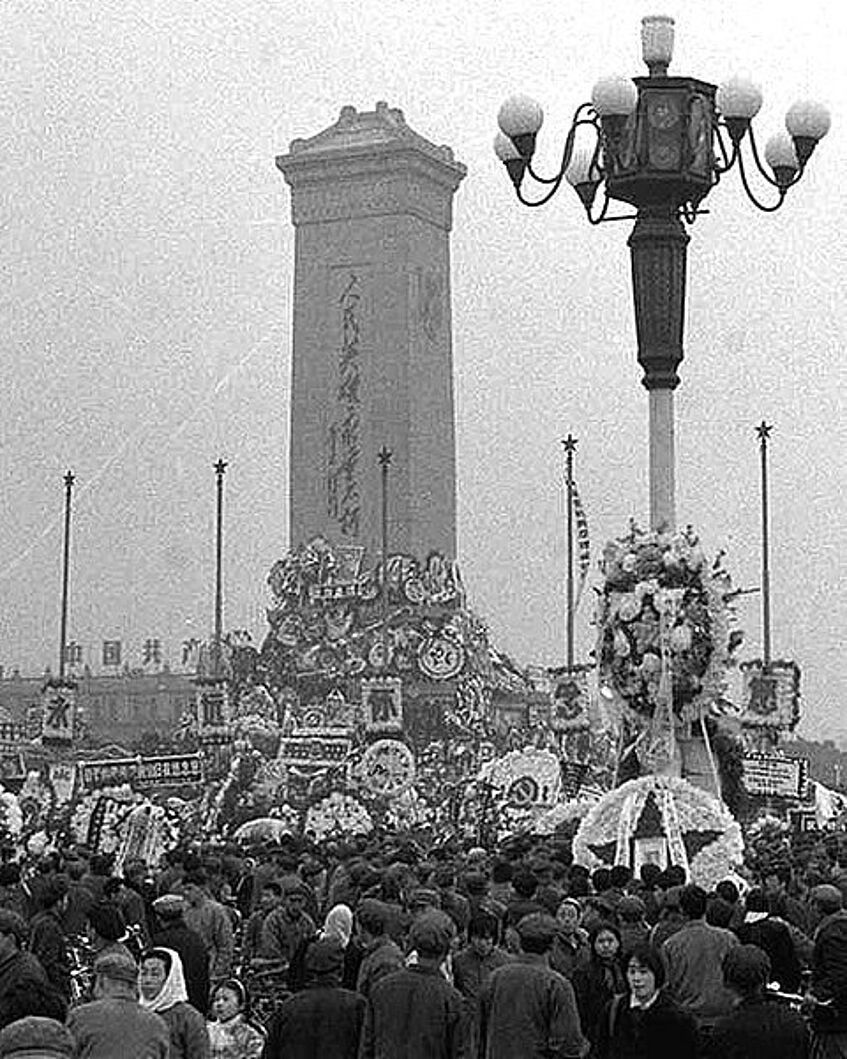
Monument to the People's Heroes (April 1976)
The First Tiananmen Square Revolt
Only weeks after the sudden decease of the pragmatic Prime Minister Zhou Enlai, during "Qingming", the traditional days of remembering the dead (April 5th, 1976), hundreds of thousands of Beijing residents moved to the Tiananmen Square to commemorate Zhou Enlai who had died on January 8.
It was certainly not a purely spontaneous demonstration, officials at the universities and colleges and in the big state enterprises had organized the rallies, but the huge turnout was certainly a reflection of genuine popular sentiments.
Participants carry white paper flowers and wreaths to lay them at the Heroes' Monument in the center of Tiananmen Square, a place to commemorate the martyrs of the revolution. Austrian exchange student Martin Krott has filmed in early 1976 with his Super 8 camera some of the events on the Peking University campus and Tiananmen Square.
Slogans and short poems are dedicated to the deceased Prime Minister, but more or less veiled allusions also reflect wide-spread displeasure with Mao and his radical allies in the leadership.
Almost open popular anger is displayed when it comes to Mao's wife Jiang Qing, who is suspected to seek to become the successor of the already ailing and severely ill Great Leader, just like the once Tang Dynasty empress Wu Zetian.
Zhou Enlai – "Beloved Prime Minister" ...
The grieve over the dead Zhou Enlai seems to be honest, many had seen in him a moderate counterpart to Mao and his radical dogmatists.
But throughout his political life Zhou Enlai has also been a loyal comrade-in-arms of the Maoist system, even during the Cultural Revolution he was constantly seen at Mao's side. In the early 70s though he became the mastermind behind important steps of normalisation after years of social and political chaos that had also left China in international isolation.
Therefore in the eyes of many Chinese Zhou stands for pragmatism, priority for economic development and opening up to the outside world.
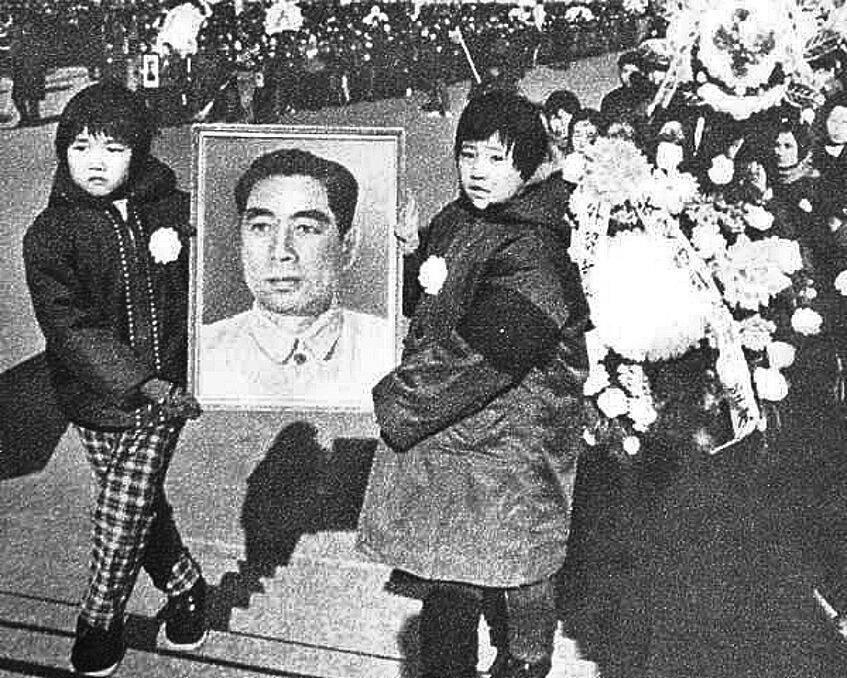
... and Pragmatic Modernizer
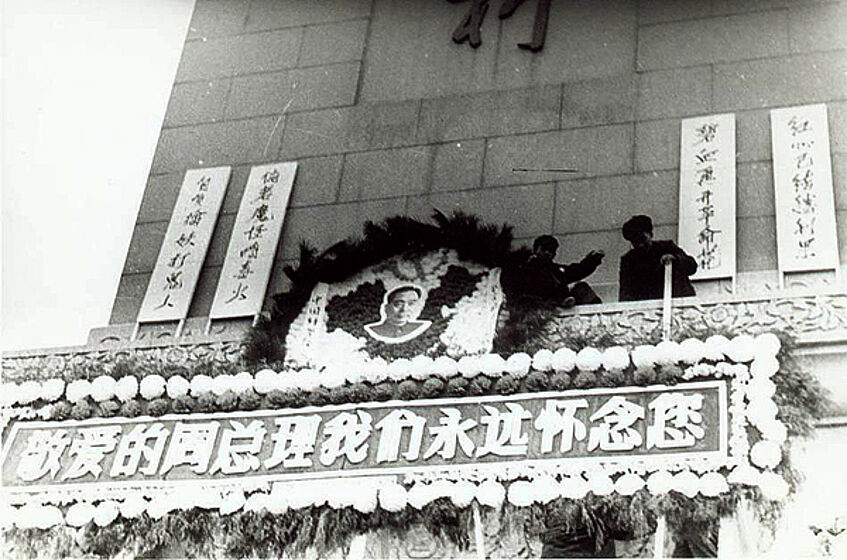
"Beloved Premier Zhou, we will eternally remember you"
... and Pragmatic Modernizer
It is Zhou Enlai who orchestrates - together with Henry Kissinger - the historic visit to Beijing by US President Richard Nixon, thus sending a clear signal that China might be interested in closer contacts with the West. The pragmatists in Beijing are convinced that China needs a peaceful international environment not only to achieve economic and social goals, but also to catch up with technological achievements abroad.
In 1963 Zhou Enlai was also the first to use the notion of "Four Modernizations" (in industry, agriculture, national defence and science), meaning that politics should give priority to a successful economic evolution over the ideologically motivated mass campaigns. In 1975, in one of his last appearances at a session of the People's Congress, Zhou pointedly takes this catchphrase up again.
Allusions to History
Already during the first days of April a seemingly endless stream of people moves towards Tiananmen Square, as if they would like to compensate with their mourning for the official funeral service in January that many considered somehow restrained.
Nevertheless most people just carry the simple slogans that have been distributed by officials beforehand, like "eternal memory" for Zhou Enlai, the "beloved premier".
Some groups of participants though have formulated their own slogans declaiming against "emperors", "dictators" or "despots" of various historical periods. Some stick bills with specially written poems on the outside walls of the Heroes' Monument, and the most daring shout full-throatedly their slogans and worries about China's future.
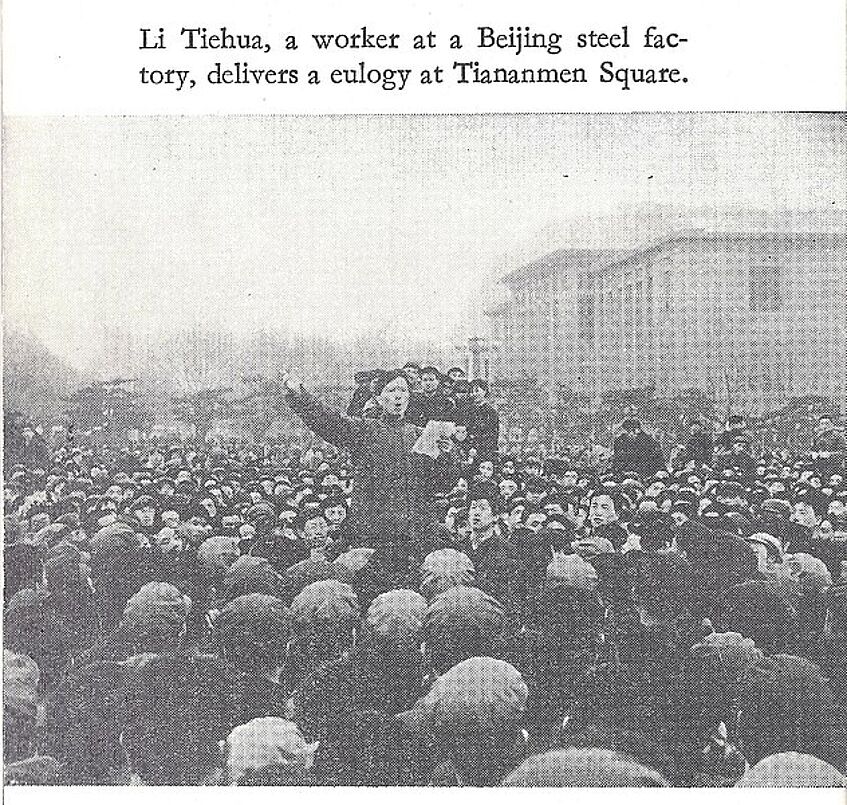
Mourners recite poems (April 1976). This famous photo by Luo Xiaoyun shows the well-known opera director Li Tiehua (李铁华), who was arrested shortly after the protest. In the first (positive) official accounts he was still described as "a steel worker". ("The Tiananmen Poems", edited and translated by Xiao Lan, Beijing 1979)
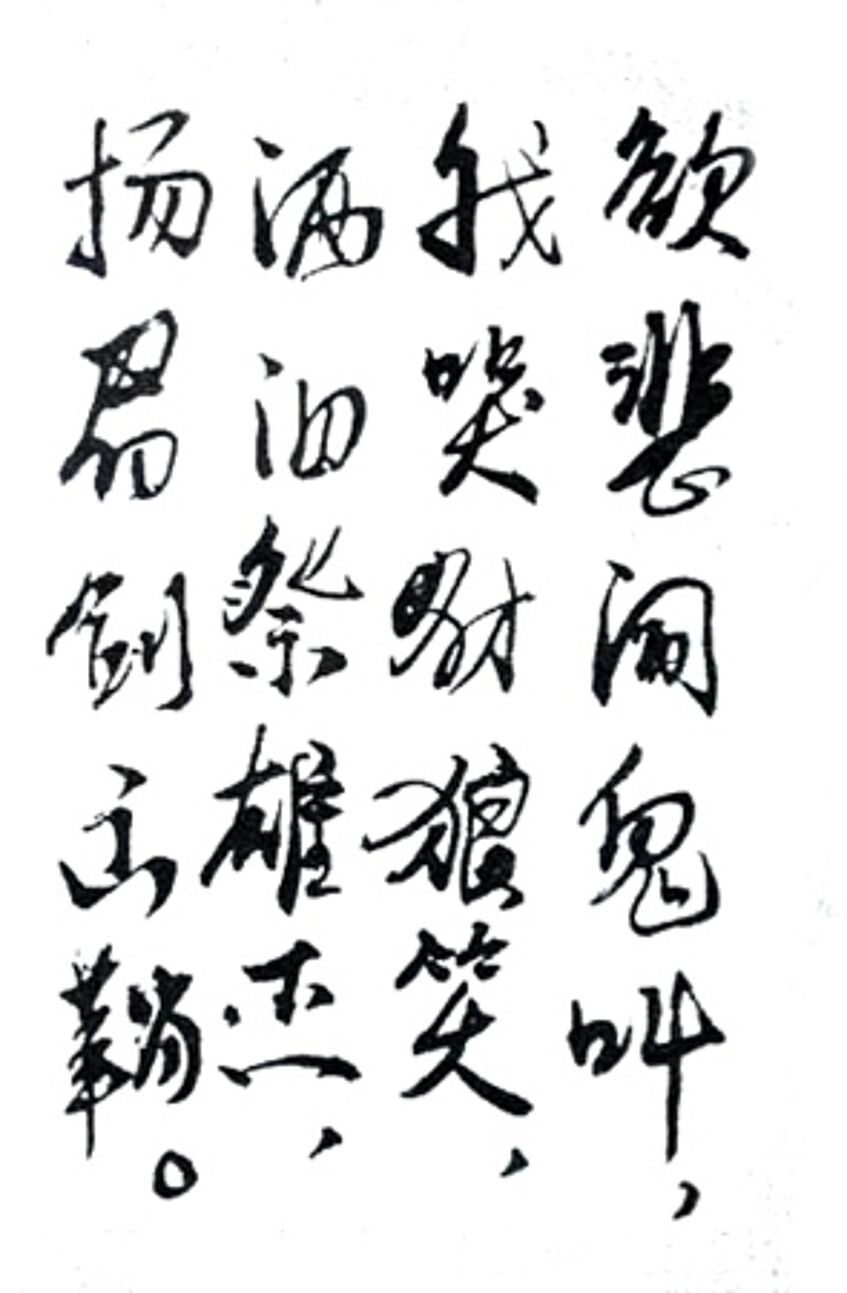
"China is not the China of the past any more,
the people is no longer ignorant.
Qin Shihuang's feudal society has ceased to exist."
(Qin Shihuang, the "first emperor of the Qin dynasty" during the 3rd century BC, was known for great achievements, but also for his big brutality. Mao has repeatedly praised him.)
"A shining star has fallen from the sky, this fills us with grief.
But a beautifully made-up empress would like to climb up to take the empty place.
She would never dare it alone and wants to bring her followers along.
They only think about how to come up there, but they let the people down behind."
(Allusion to Mao's wife Jiang Qing and the group that would later be named the "Gang of Four" .)
"We want Zhou and not Franco,
we want freedom and democracy, not fascism,
and we do not want a crappy empress."
"In my grief I hear demons shriek;
I weep while wolves and jackals laugh.
Though tears I shed to mourn a hero,
With head raised high, I draw my sword."
(From "The Tiananmen Poems", edited and translated by Xiao Lan, Foreign Languages Press, Beijing 1979. The author, who got arrested for several months because of the "counter-revolutionary contents" of the poem, has been identified as the middle school student Wang Juntao. He later became a leading activist of the 1979 "Beijing Spring" and the students' movement of 1989.)
Authorities react
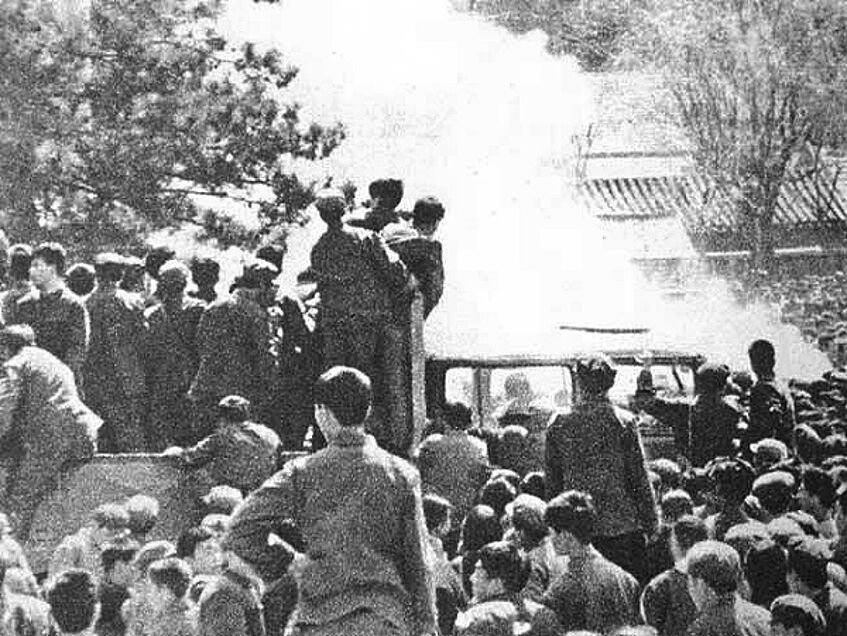
Police and "People's Militia" at Tiananmen Square (April 1976)
Authorities react
Although the "mourning" for Zhou Enlai has to large extent been organized and directed by party officials, the protest quickly gets out of hand. Especially the veiled references to "despotism" and authoritarian politicians close to Mao strongly displease the leadership. During the night from April 4 to April 5 security forces remove slogans and wreaths from the Heroes' Monument, much to the dislike of another hundred thousand mourners who arrive at the square the next morning. Outraged protesters storm some of the surrounding government buildings, followed by violence in the square itself.
Workers' militias are mobilized to contain the rising unrest, and they eventually succeed in dispersing the protesters during the day. A number of core activists get arrested, some are wounded or come to death, but many of the details are still not known.
